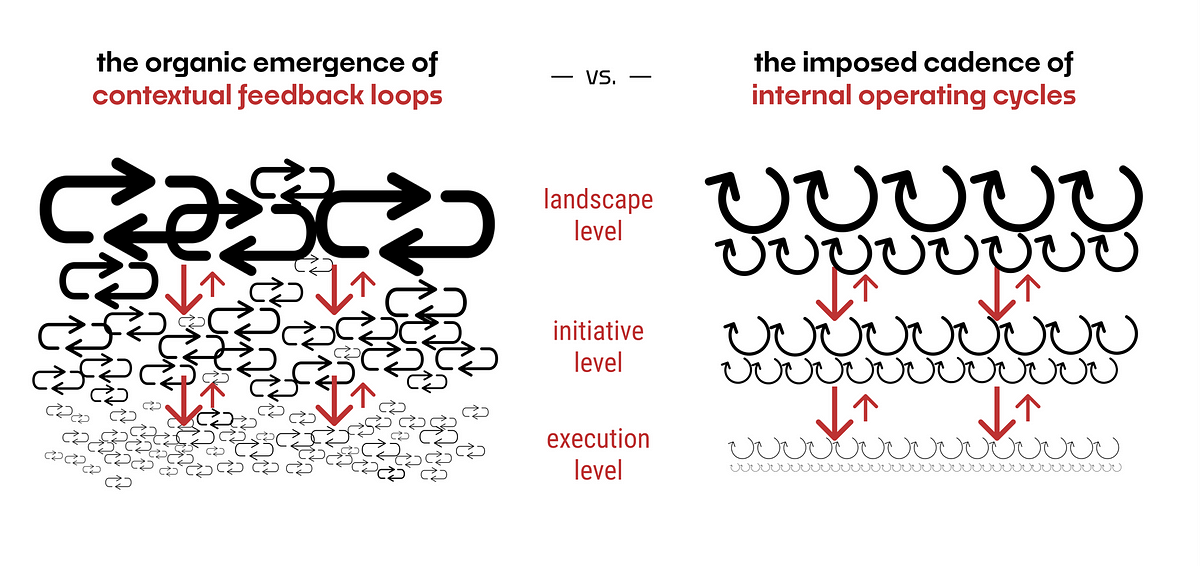
External loops vs. Internal cycles | by Dave Hora | Feb, 2024
[ad_1]
The value of research lies in external feedback loops. Its impact moves through internal operating cycles.
Our business goals and our products and our assumptions change over time; the corresponding market environment and customer needs and patterns of user activity change, too.
These drifts from equilibrium create the need for contextual insight. They dictate where and, crucially, how often new evidence is required to push work forward in the organization.
Research, in its current incarnation, is valuable because so many external feedback loops that need to be “closed” require qualitative human insight — insight into behavior, activities, expectations, goals, experience, and context — and the capacity to interpret and reframe that information to set the team in a productive direction.
For a research program to be successful, though, closing external loops is not good enough. That’s core, but the core doesn’t sell itself.
There is an entirely different class of cycle driven by internal organizational constraints that a research program must integrate with to drive change and impact.
Today, with an eye towards organizational fluency, we’ll peel apart three levels of organizational scale, and then examine the crucial difference between external feedback loops, and internal operating cycles that operate on those different levels of scale.
There are many ways to slice our practice and the organizational context it sits in. The simplest divide is to speak about “strategic” vs. “tactical”. With more nuance, Judd Antin defines research activities in terms of macro, middle, and micro-level work: this view speaks particularly well to the nature of research that best suits each level.
For our purposes here, our view will ƒzoom out one level higher than research itself, using the scales of landscape, initiative, and execution. These levels are inspired by the intersection of the structural view of experience and different perspectives present in the organization.
[ad_2]
Source link



